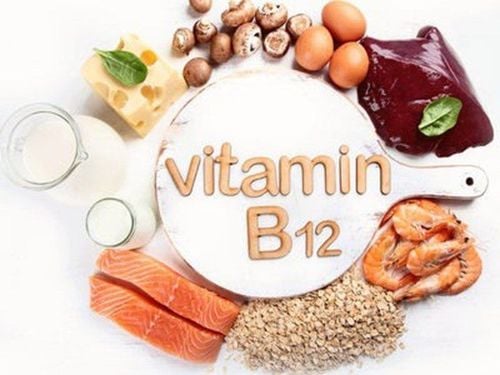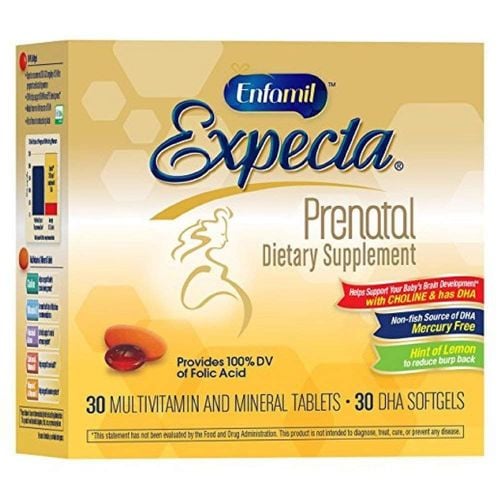This is an automatically translated article.
Vitamins and minerals are essential and they can only be obtained from the diet. However, the minerals and vitamins that help children eat well will only need to be provided in small amounts through a healthy, balanced diet.
1. The reason why children don't eat well
Some of the most common reasons for decreased appetite in children include:
Psychological disorders, such as stress, depression and anxiety; Digestive disorders, such as peptic ulcer disease, GERD and ulcerative colitis; Chronic diseases; Certain chronic infections; Certain medications; Less physical activity. In infants and toddlers, causes of decreased appetite or poor appetite can include:
Food allergies; Family stress; Forced to eat too much; Not being exposed to a variety of foods at an early age; Drinking too much milk or juice between meals; Difficulty with early feeding, abdominal pain, frequent vomiting or difficulty feeding; Genetic problems; Unreasonable time and eating habits; Eat alone; Delayed eating solid foods at 9 months of age; Family conflict during mealtimes.

Những khoáng chất và vitamin giúp trẻ ăn ngon sẽ chỉ cần được cung cấp với một lượng nhỏ thông qua chế độ ăn uống cân bằng và lành mạnh
2. Basic principles of vitamins and minerals
Children need a lot of essential vitamins and minerals for growth and development. These include:
Vitamins A, B, C, D, E and K; Minerals such as calcium, iron, iodine and zinc. The best way for your child to get enough vitamins and minerals is to eat a variety of foods from the 5 healthy food groups:
Green vegetables; Fruit; Grain foods - bread, pasta, breakfast cereals, rice, corn... Low fat dairy foods - milk, yogurt and cheese. Lean meat and fish, chicken, eggs, tofu, legumes (peas, lentils, etc.) The body absorbs vitamins, minerals, and other nutrients better when they come from food.
3. Vitamins that help children eat well
Below is a list of vitamins to help children eat better and corresponding food sources that parents should prioritize for children.
Vitamin A: Children can get vitamin A from liver, meat, milk, eggs, orange fruits and vegetables like carrots and sweet potatoes. Children need vitamin A for vision, healthy skin, growth, development and good immune function. Vitamin B1 (thiamin): Children can get vitamin B1 from fish, meat, yeast extracts (such as Vegemite), whole-grain breads, and fortified breakfast cereals. Vitamin B1 helps release energy from food, for the nervous system and muscles to function properly. Vitamin B2 (riboflavin): Children can get vitamin B2 from milk, yogurt, meat, cheese, yeast extracts, eggs, whole-grain breads, and fortified breakfast cereals. . Vitamin B2 is not only a vitamin that helps children eat well, but also helps to release energy from food. Vitamin B3 (niacin): Children can get Vitamin B3 from meat, fish, chicken, nuts, and yeast extracts. Vitamin B3 helps release energy from food. Vitamin B6 (pyridoxine): Children can get vitamin B6 from meat, fish, whole grain foods, vegetables, and nuts. Vitamin B6 releases energy from protein and helps with red blood cell production and a healthy nervous system. Vitamin B12 (cobalamin): Children can get vitamin B12 from foods of animal origin including meat, fish, eggs and dairy, as well as from some fortified breakfast cereals. Vitamin B12 is not only a vitamin that helps children eat well, but also helps in the production of red blood cells and promotes growth. Vitamin C (ascorbic acid): Children can get vitamin C from fruits and vegetables, especially citrus fruits, kiwi fruit, bell peppers, and potatoes. Vitamin C builds collagen, helps your body fight infections, and absorbs iron from food. It also keeps teeth, bones and gums healthy. The vitamin C content in foods can be reduced during processing. Vitamin D: The body makes most of the vitamin D it needs when it gets enough direct sunlight on the skin. There are small amounts of vitamin D in fish oil, cod liver oil, egg yolks, mushrooms, and margarine. Vitamin D helps you absorb calcium to keep your bones strong. Vitamin E: Children can get vitamin E from sunflower and canola oils, margarine, seeds, and nuts. Vitamin E boosts your immune system and helps develop healthy skin and eyes. Vitamin K: Children can get vitamin K from green leafy vegetables like broccoli and spinach, as well as from eggs and beans. The healthy bacteria in your gut also make vitamin K. Vitamin K is important for the blood clotting system in the body. Folate (folic acid): Children can get folate from green leafy vegetables, liver, legumes, breads and whole grains. Folate helps you absorb protein and form new blood cells and DNA. Getting enough folate before and during pregnancy can help prevent neural tube defects. Cooking and processing foods reduces the amount of folate in foods.

Vitamin B12 không chỉ là loại vitamin giúp trẻ ăn ngon mà còn giúp sản xuất hồng cầu và thúc đẩy trẻ tăng trưởng
4. Minerals help children eat well
In addition to vitamins to help children eat well, here is a list of minerals that children need:
Calcium: Children can get calcium from dairy products such as milk, cheese and yogurt, fish, green vegetables. Calcium helps keep bones and teeth strong. Iodine: Children can get iodine from seafood, vegetables grown on iodized soil, iodized salt, and bread made with iodized salt. Iodine is needed for normal growth and tissue development and helps control a baby's cells to make energy and use oxygen. Iron: Children can get iron from meat, liver, chicken, seafood, dried beans, egg yolks, and fortified breakfast cereals. Iron is especially important for brain function and red blood cell production, and it also helps transport oxygen throughout the body. Zinc: Children can get zinc from meat, chicken, seafood, dairy, nuts, tofu, and whole grains. In short, how to feed children deliciously is not only supplementing with essential vitamins and minerals, but parents also need to learn how to create a comfortable environment for children while eating. At the same time, diversify daily dishes so that children do not feel bored.
In addition to dietary supplements, parents can give their children support foods containing vitamin B1 and essential micro-minerals such as zinc, lysine, chromium, selenium, ... to help fully meet their needs. nutritional needs in children. At the same time, these essential vitamins also support digestion, enhance nutrient absorption, help improve anorexia, and help children eat well.
>> Parents can learn more: Vitamin B1 deficiency: What parents need to know by Specialist Doctor I Le Tuyet Nga - Pediatrician - Vinmec Gardenia Clinic
Please visit Vinmec.com website often. and update useful information to take care of your baby and the whole family.













